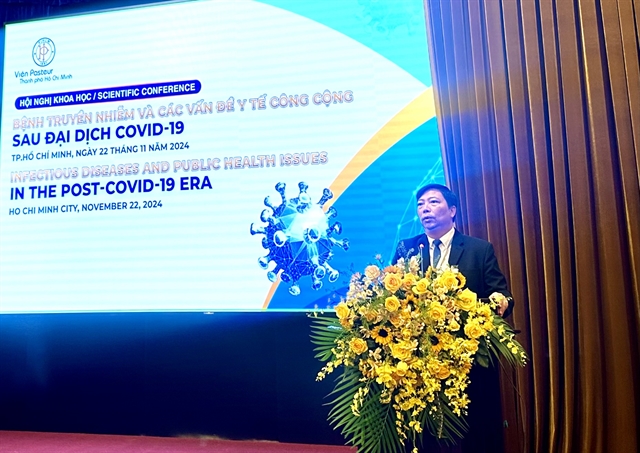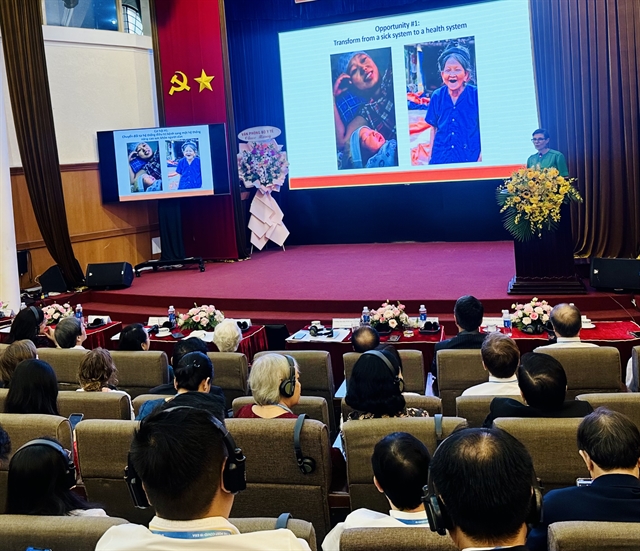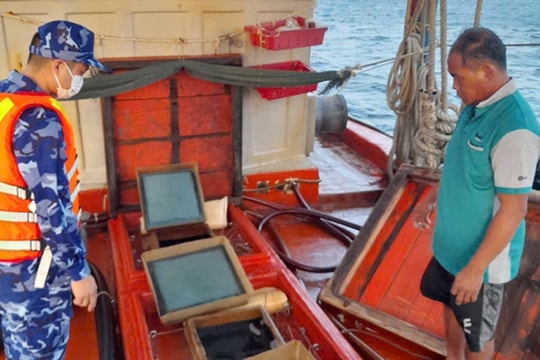 |
| Nguyễn Vũ Trung, director of the Pasteur Institute in HCM City speaks at the scientific conference held in HCM City on November 22. — VNS Photo Nguyễn Diệp |
HCM CITY — The application of diagnostic technologies in the laboratory and artificial intelligence (AI) plays an increasingly important role in the fight against infectious diseases, especially new or emerging infectious diseases, Nguyễn Vũ Trung, director of the Pasteur Institute in HCM City, said at a scientific conference held in HCM City on Friday (November 22).
The Pasteur Institute in HCM City organised the scientific conference on infectious diseases and public health issues in the post-COVID-19 era.
The conference shared and updated the latest scientific research results on emerging and re-emerging infectious diseases; antibiotic resistance, new vaccine research, laboratory quality management, non-communicable diseases, and other public health issues after the pandemic.
It is also a place to share knowledge and experience between scientists, policy activists, managers from units inside and outside the health sector, research institutes, universities, disease control centres, hospitals, health organisations domestically and internationally
Speaking at the conference, Trung said through cloud computing platforms, AI can process huge amounts of real-time data, monitor infectious disease outbreaks, analyse medical images, detect disease signs more quickly and accurately, and identify infections in a timely manner to mitigate the risks.
AI applications in bacteriophage (phage) therapy offer new hope in the fight against drug-resistant bacteria.
AI models can effectively simulate the complex interactions between bacteria and hosts in different metabolic states, provide a visual basis for understanding microbial behavior in specific host environments, and optimise the design and development of drugs and vaccines.
“These technological advances could help us better respond to recognising new or emerging infectious diseases, and minimise their impact on public health,” he said.
The study of a three-member group, including Lê Thanh Tân, Trần Minh Tường and Vũ Thanh Tùng, from the Southern Military Institute of Preventive Medicine, showed that the loop isothermal amplification (LAMP) method successfully detects the Mpox virus (MPV) under isothermal temperature, with results observable with the naked eye through the colour change in the reaction.
“These results indicate a remarkable potential for the in-field diagnosis of MPV,” it said.
Mpox is a notable outbreak spread around the world in 2022. Currently, the World Health Organisation (WHO) recommends diagnosing MPV using the polymerase chain reaction (PCR) method in national laboratories.
However, the PCR requires expensive equipments and the laboratory must meet specific standards.
The study evaluated the analytical sensitivity and specificity for the LAMP technique, aiming to rapidly and inexpensively detect MPV, and providing results that are visible to the naked eye.
 |
| The Pasteur Institute in HCM City on November 22 organised a scientific conference on infectious diseases and public health issues in the post-COVID-19 era. — VNS Photo Nguyễn Diệp |
A review of Trần Thị Hồng Kim and Nguyễn Anh Duy from the Pasteur Institute in HCM City highlights the burden of lead poisoning disease in children, causes and mechanism of lead neurotoxicity in children, as well as diagnosis, prevention and treatment methods.
The review showed that lead, a toxic heavy metal, is affecting various organ systems, particularly the developing brain.
“Children are more affected by lead toxicity than adults,” it said.
Due to its similarity to divalent cations, namely calcium, zinc and magnetism, lead is capable of interfering with signaling cascades and mechanisms medicated/regulated by these cations.
With the brain, lead-induced damage can result in to a variety of neurological disorders such as brain damage, mental retardation, behavioral problems, nerve damage, and possibly Alzheimers’s disease, Parkinson’s disease, and schizophrenia.
A blood lead test should be used for lead poisoning, it said.
“Medical treatment is chelation therapy but the best approach is to prevent direct exposure to lead and thus preclude future consequences,” it said.
Many delegates also pointed out difficulties and challenges in the control and prevention of infectious diseases and discussed to find solutions together.
After the COVID-19 epidemic, the outbreaks of existing diseases such as measles, dengue fever and hand-foot-mouth disease caused great impacts on the economy, society and people's lives. — VNS
























